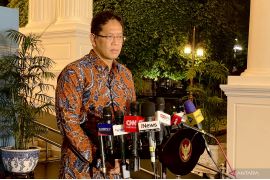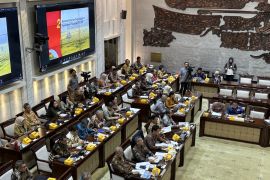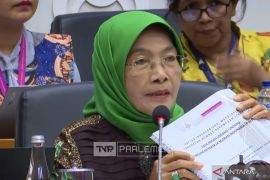Deputy House Speaker Pramono Anung Wibowo, who led the meeting at the parliament building, banged the gavel down immediately after the presiding lawmakers approved the law.
"For a quite long time, Indonesia did not have its own trade law. Do you agree to the passage of this trade bill into law?" he asked.
The lawmakers, who were present, quickly replied in the affirmative.
Earlier in the day, Chief of the House Commission VI Airlangga Hartarto emphasized that the aim of enacting the trade law was to protect the countrys trade interests.
The trade bill, if endorsed into law, will make it mandatory for all state-funded projects to use domestic products, he claimed.
"The trade bill will also mandate the central and regional governments to cooperate in developing, empowering, and promoting the peoples market as one of the trade facilities as well as to revitalize the peoples market," he explained.
After the bill was passed into law, it will play the role of a catalyst in increasing the countrys exports, which will eventually increase foreign exchange earnings, he added.
"Following the passage of the trade bill into law, Indonesia will have its own trade law. So far, Indonesia has adopted the trade law enacted during the Dutch colonial era," he stated.(*)
Editor: Heru Purwanto
Copyright © ANTARA 2014











